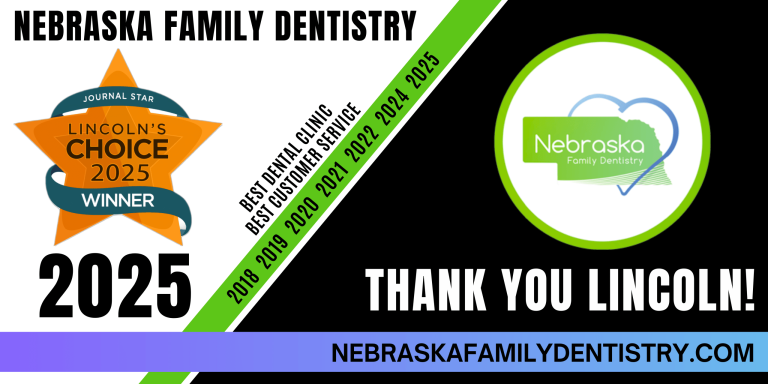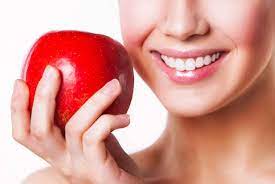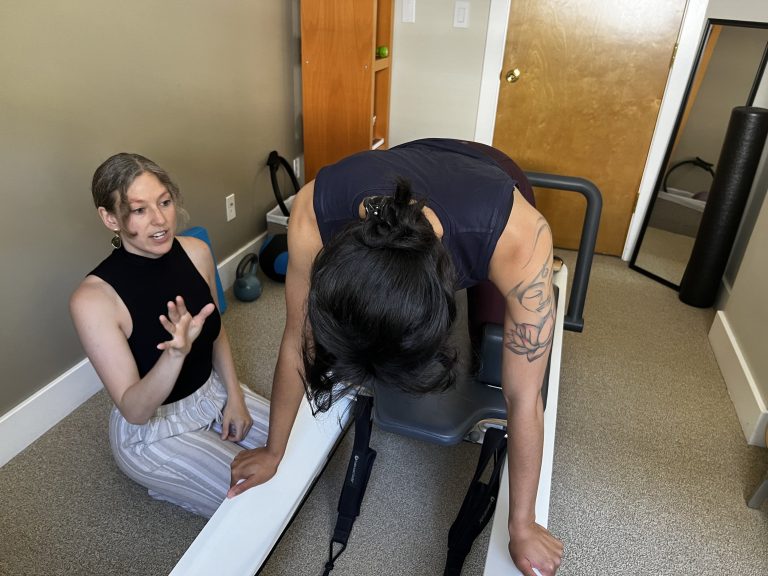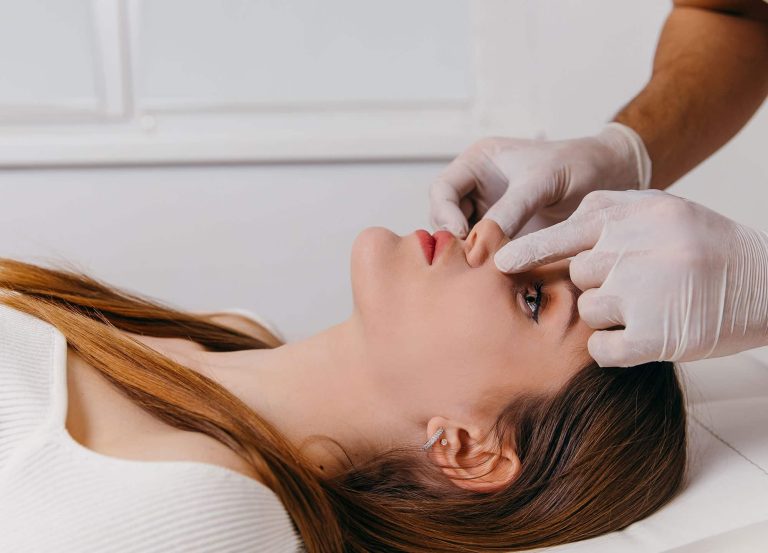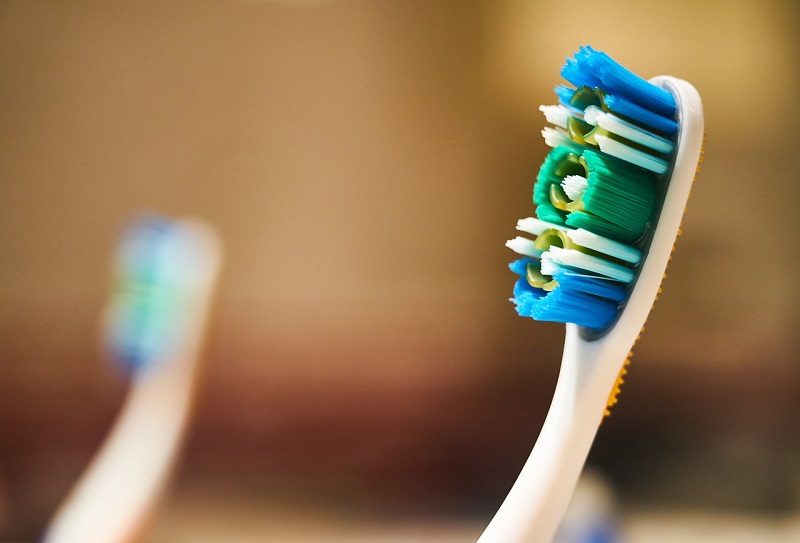
Brush Twice A Day using right toothbrush

From the youngest age, the importance of cleaning your teeth is stressed daily, with the task of brushing your teeth routine in every home.
But over time we might develop bad habits or undertake shortcuts we think cause no harm, yet these time-saving measures can cause problems and require a visit to a dentist eventually.
Here are some simple tips on how you can improve your dental health and help keep your teeth and gums clean.

1) Use Right Toothbrush & Brush Twice Daily
A toothbrush with a compact head that has both long and short, round-end bristles is most probably the best option.
For most people, a medium to soft bristle is best and taking more time to clean your teeth is the secret.
Take at least two minutes when brushing your teeth, reaching all parts of your mouth.
And, brush twice a day, both morning and night.
2) Brush Gums along with Teeth
Caring for your gums is equally important as brushing your teeth.
Most people have experienced some form of gum disease with the tell-tale sign being bleeding when you brush or floss your teeth or even bad breath. These early signs of gum disease are called gingivitis.
Failing to deal with gingivitis can lead to periodontitis, a serious condition that affects the areas of your mouth that hold your teeth in place and can even cause damage to your jawline.
Regular brushing tackles gingivitis. Angle your toothbrush at around 45 degrees into the gum line, then gently brush with smooth, steady movements.
3) Chewing Sugar-Free Gum
The simple act of chewing sugar-free gum can help improve the health and appearance of your teeth.
Ensuring the gum is sugar-free, and by chewing for a short time, you help remove food particles from the surface of your teeth and prevent cavities.
When chewing gum, you also produce more saliva in your mouth that helps clean away any small particles of food and helps reduce the acid levels in your mouth that can cause tooth decay.
4) Must Avoid Sugary Foods & Soft Drinks
Of course, one of the best ways to improve your dental health – and overall well-being – is to cut out food and drinks that contain high levels of sugar.
A dentist in Amersham wouldn’t suggest you completely stop eating sugary products, it is practically impossible, but you can reduce the amount you eat and be aware of its presence in food.
Sugar increases the production of plaque acids that attack tooth enamel, leading to the formation of cavities.
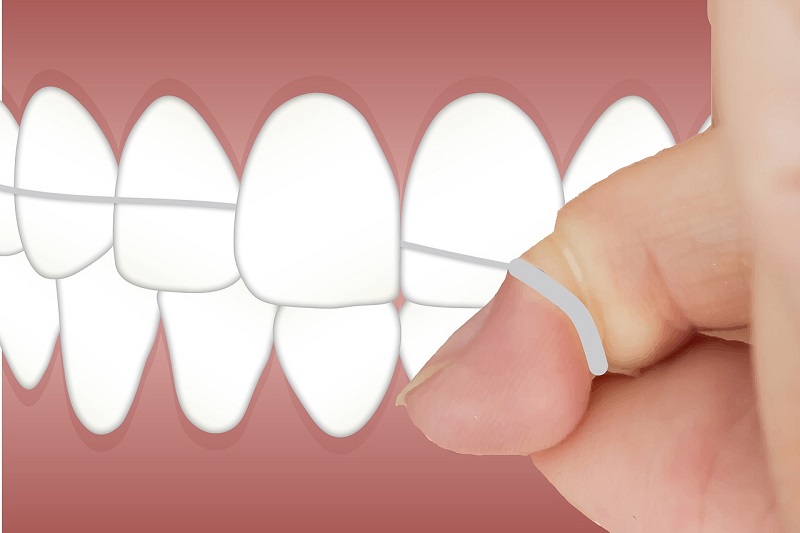
5) Flossing Is as Important as Brushing
Have you told your dentist you floss regularly, but in reality, you do not? Well, you are not alone as a survey revealed that one in four people do not tell their dentist the truth on how often they floss.
This simple task can help remove food particles that regular brushing sometimes misses. The area between your teeth is a significant source of gum disease and cavities.
Ease a short length of floss between your teeth and move it gently making around ten strokes up and down to dislodge food. Try not to use a sawing action because you risk damaging your gums.
6) Use Fluoride Toothpaste
There are different levels of fluoride in toothpaste, so check the packaging to find out how much fluoride is present.
For adults, use a brand of toothpaste that contains a minimum of 1,350 parts per million (ppm) fluorides.
There is no need to pay extra for children’s toothpaste. The effectiveness of the toothpaste depends upon the amount of fluoride present.
A child can use family toothpaste as long as it contains 1,350 to 1,500 ppm fluoride.
7) Drink Enough Water
Not only is drinking water regularly helpful for your body, but it also has real benefits for your teeth as well.
Most tap water usually has fluoride added to it, and so over time, it has a beneficial effect on your teeth.
Water will wash away any food particles left behind after eating reducing the potential for cavities to develop. It also helps to produce saliva in your mouth that acts as one of the most effective tools against tooth decay.
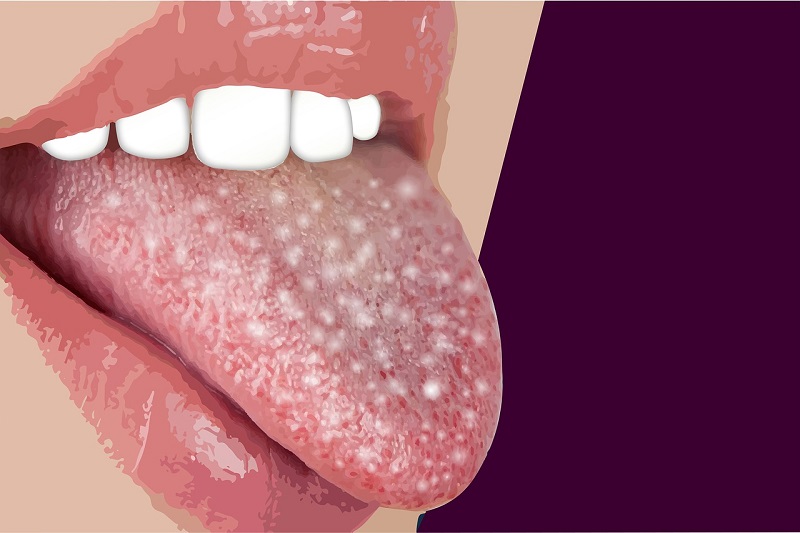
8) Tongue Test Is Important to Check Cleanliness of Teeth
The tongue test is a simple step in checking your teeth and gums are clean and is something you can do at any time of the day.
This test involves sweeping your tongue across the line between your teeth and gum to see if it feels smooth and clean, often you do this on your front teeth, and they do feel clean as this area of your mouth is the easiest to reach with your toothbrush.
Also check areas that are a little more difficult reach – such as the lower, rear area of your mouth that require you to twist your tongue back.
9) Stop Bad Oral Health Habits
One of the worst habits people develop for their teeth is thinking the harder they brush, the deeper the clean when ultimately you run the risk of damaging your teeth and causing irritation in your gums.
A soft to medium toothbrush is best. Don’t scrub your teeth aggressively which can damage the enamel and irritate your gums.
Do not rinse out your mouth with water immediately after brushing as this can wash away the concentrated fluoride in the toothpaste still in your mouth, reducing its preventative effects.
10) Avoid Brushing or Flossing immediately after drinking acidic beverages
Drinks and food that contain acidic concentrations such as orange, grapefruit, and lemon, weaken tooth enamel. Dentists recommend not brushing your teeth for around 30 minutes after eating or drinking these foods.
Drinking water while eating will help wash away some of the acids, and increased saliva will help combat against the same problems as well as protect the enamel surface of your teeth.


